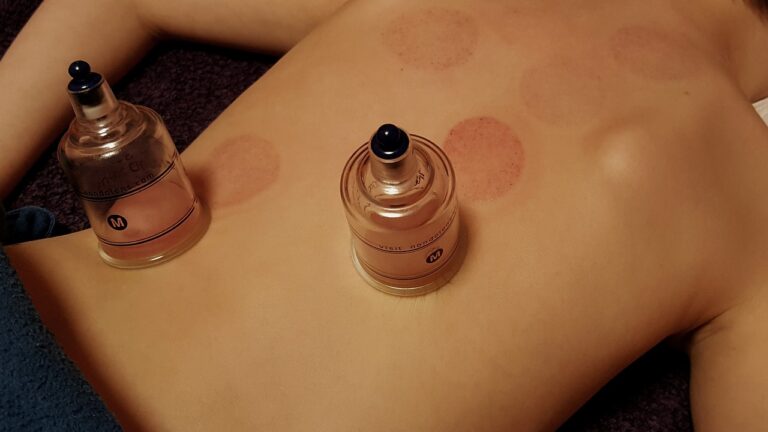Recognizing the Signs of Hormone Imbalance in Women
all panel, cricbet99, lotus365win login: Recognizing the Signs of Hormone Imbalance in Women
Do you ever feel like something just isn’t quite right with your body? Maybe you’ve been experiencing unexplained weight gain, mood swings, or irregular periods. These could be signs of a hormone imbalance, a common issue that many women face at some point in their lives.
Hormones play a crucial role in regulating various bodily functions, such as metabolism, mood, and reproductive health. When hormones become imbalanced, it can lead to a range of symptoms that can impact your overall well-being. In this blog post, we will explore some common signs of hormone imbalance in women and what you can do about it.
1. Irregular periods
One of the most common signs of a hormone imbalance in women is irregular periods. Hormonal fluctuations can disrupt the normal menstrual cycle, leading to missed periods, heavy or light periods, or irregular spotting. If you notice changes in your menstrual cycle, it’s essential to consult with your healthcare provider to identify the underlying cause.
2. Mood swings
Hormone imbalance can also impact your mood, leading to mood swings, anxiety, irritability, or depression. Fluctuations in estrogen and progesterone levels can influence neurotransmitters in the brain, affecting your emotional well-being. If you find yourself experiencing sudden changes in mood, it may be a sign of hormone imbalance.
3. Weight gain
Unexplained weight gain, especially around the abdomen, hips, and thighs, can be a sign of hormone imbalance. Hormones like insulin, cortisol, and thyroid hormones play a role in regulating metabolism and fat storage. When these hormones are out of balance, it can lead to weight gain or difficulty losing weight despite efforts to diet and exercise.
4. Fatigue
Feeling tired and fatigued even after a full night’s sleep can be another indication of hormone imbalance. Hormones like cortisol and thyroid hormones help regulate energy levels and metabolism. When these hormones are imbalanced, it can lead to feelings of fatigue and low energy.
5. Hair loss
Changes in hormone levels can also affect the health of your hair. Hormone imbalance, particularly an excess of androgens like testosterone, can lead to hair loss or thinning, especially along the scalp’s crown. If you notice a sudden increase in hair shedding or thinning, consider getting your hormone levels checked.
6. Acne
Hormone imbalance can trigger acne breakouts in women, especially around the jawline, chin, and cheeks. Fluctuations in androgen hormones like testosterone can lead to increased sebum production, clogged pores, and inflammation, resulting in acne flare-ups. If you’re experiencing persistent acne despite skincare efforts, hormone imbalance may be the culprit.
7. Digestive issues
Hormone imbalance can also affect digestive health, leading to symptoms like bloating, gas, constipation, or diarrhea. Hormones like estrogen and progesterone influence gut motility, digestion, and nutrient absorption. When these hormones are imbalanced, it can disrupt the gut microbiome and lead to digestive issues.
8. Changes in libido
Fluctuations in hormone levels, particularly estrogen and testosterone, can impact libido and sexual desire in women. Hormone imbalance can lead to a decreased sex drive, vaginal dryness, or pain during intercourse. If you notice changes in your sexual health, it’s essential to address any underlying hormone issues.
9. Insomnia
Trouble falling asleep or staying asleep can be a sign of hormone imbalance, particularly disruptions in cortisol and melatonin levels. Hormones play a crucial role in regulating the sleep-wake cycle and stress response. When hormone levels are imbalanced, it can lead to insomnia or poor sleep quality.
10. Breast tenderness
Hormone imbalance can also manifest as breast tenderness or swelling, especially before menstruation. Fluctuations in estrogen and progesterone levels can lead to changes in breast tissue, causing discomfort or pain. If you experience persistent breast tenderness, it’s important to address any hormone imbalances.
What to Do About Hormone Imbalance
If you’re experiencing any of these signs of hormone imbalance, it’s essential to consult with your healthcare provider for a proper evaluation and diagnosis. Your doctor may recommend blood tests to assess your hormone levels and identify any imbalances. Depending on the underlying cause, treatment options may include lifestyle changes, dietary modifications, hormone replacement therapy, or other interventions to help restore hormonal balance.
In addition to medical treatment, there are also lifestyle changes you can make to support hormone balance naturally. Eating a balanced diet rich in fruits, vegetables, whole grains, and lean proteins can help support hormonal health. Regular exercise, stress management techniques like yoga or meditation, and adequate sleep can also play a role in maintaining hormone balance.
FAQs
Q: Can hormone imbalance be the cause of infertility?
A: Yes, hormone imbalance can contribute to fertility issues in women by disrupting ovulation, implantation, or embryo development. Consulting with a fertility specialist can help identify and address any hormone imbalances affecting fertility.
Q: Are there natural remedies for hormone imbalance?
A: While lifestyle changes like diet, exercise, and stress management can support hormone balance, some women may benefit from natural remedies like herbal supplements, acupuncture, or chiropractic care. It’s important to consult with a healthcare provider before trying any natural remedies.
Q: How long does it take to restore hormone balance?
A: The time it takes to restore hormone balance depends on the underlying cause, individual health factors, and treatment options. Some women may see improvement in symptoms within a few weeks to months with appropriate medical treatment and lifestyle changes.
Q: Are hormone imbalances common during menopause?
A: Yes, hormone imbalances are common during perimenopause and menopause as estrogen and progesterone levels decline. Symptoms like hot flashes, night sweats, mood swings, and vaginal dryness are often associated with hormonal changes during this life stage.
Q: Can stress contribute to hormone imbalance?
A: Yes, chronic stress can disrupt hormone balance by increasing cortisol levels, affecting thyroid function, and altering reproductive hormones. Managing stress through relaxation techniques, exercise, and therapy can help support hormone balance.
In conclusion, paying attention to your body’s signals and recognizing the signs of hormone imbalance in women is crucial for maintaining optimal health and well-being. By addressing any hormone imbalances with the help of healthcare providers and making lifestyle changes to support hormonal health, you can take control of your hormonal balance and improve your overall quality of life.







